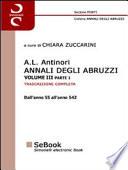
Cerca negli ebook:

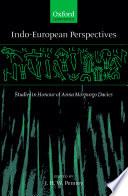
Indo-European Perspectives
Autore: Anna Morpurgo Davies , J. H. W. Penney
Numero di pagine: 598This book brings together new and original work by forty two of the world's leading scholars of Indo-European comparative philology and linguistics from around the world. It shows the breadth and the continuing liveliness of enquiry in an area which over the last century and a half has opened many unique windows on the civilizations of the ancient world. The volume is a tribute to Anna Morpurgo Davies to mark her retirement as the Diebold Professor of Comparative Philology at the University of Oxford. The book's six parts are concerned with the early history of Indo-European (Part I); language use, variation, and change in ancient Greece and Anatolia (Parts II and III); the Indo-European languages of Western Europe, including Latin, Welsh, and Anglo-Saxon (Part IV); the ancient Indo-Iranian and Tocharian languages (Part V); and the history of Indo-European linguistics (Part VI). Indo-European Perspectives will interest scholars and students of Indo-European philology, historical linguistics, classics, and the history of the ancient world.
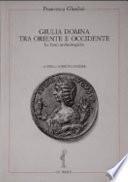
Giulia Domna tra oriente e occidente
Autore: Francesca Ghedini
Numero di pagine: 235
Historia d'Herodian dello imperio dopo Marco
Autore: Herodian
Numero di pagine: 230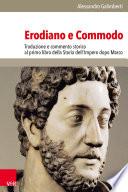
Erodiano e Commodo
Autore: Alessandro Galimberti
Numero di pagine: 187It’s the first historical commentary on the first book of Herodian’s “History of the Empire after Marcus” on Commodus’ principate. The commentary is accompanied by an extensive historiographical introduction and by the italian translation. The analysis of the first book shows that Herodian was an eyewitness of Commodus’ reign and integrates this testimony, made of personal memories, with oral and written sources. There is no reason to exclude that Herodian had read the work of Cassius Dio - who was also an eyewitness of Commodus’ time - indeed, it is very likely that Dio was among the sources of Herodian, although it is wrong to think that Herodian depends exclusively from Dio and consequently to understimate the testimony of Herodian in favor of that of Dion. Herodian, who writes for a greek audience is for us a very valuable source for Commodus’ reign for at least two reasons: first, because it preserves a point of view different from the senatorial one that is in Dion and in the Commodus life in the Historia Augusta, as well as in other minor sources, radically hostile to Commodus, among which Galen’s De indolentia, whose testimony (the oldest in the reign of...
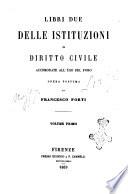
Libri due delle istituzioni di diritto civile accomodate all'uso del foro opera postuma di Francesco Forti
Numero di pagine: 610
Libri due delle Istituzioni di Diritto Civile
Autore: Francesco Forti
Numero di pagine: 610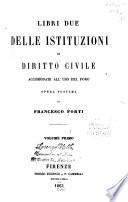
Libri due delle istituzioni di diritto civile, accomodate all'uso del foro
Autore: Francesco Forti
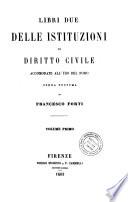
Opere edite e inedite di Francesco Forti
Autore: Francesco Forti
Numero di pagine: 610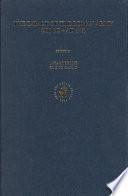
The Impact of the Roman Army (200 BC-AD 476)
Autore: Impact of Empire (Organització). Workshop
Numero di pagine: 589This sixth volume of the network Impact of Empire offers a comprehensive reading on the economic, political, religious and cultural impact of Roman military forces on the regions that were dominated by the Roman Empire.

Revue de Qumrân
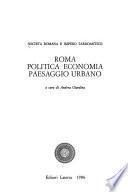
Società romana e impero tardoantico: Roma, politica, economia, paesaggio urbano
Autore: Andrea Giardina
Numero di pagine: 509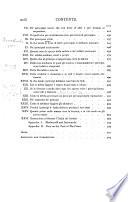
Il principe
Autore: Niccolò Machiavelli
Numero di pagine: 402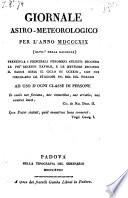
Giornale astrometeorologico per l'anno ... Mostra le ore Italiane, e Oltramontane, dell'Alba, del Levar del Sole, del Mezzodi, della Mezza notte (etc.)
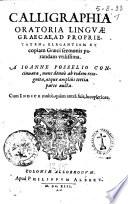
Calligraphia oratoria linguae graecae, ad proprietatem, elegantiam et copiam graeci sermonis parandam vtilissima. A Joanne Posselio concinnata, nunc denuo ab eodem recognita, atque amplius tertia parte aucta. Cum indice multo, quam antea fuit, locupletiore
Autore: Johann Possel
Numero di pagine: 776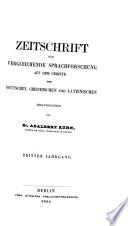
Bullettino dell'Instituto di corrispondenza archeologica
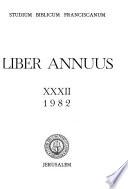
Liber annuus
Autore: Studium Biblicum Franciscanum
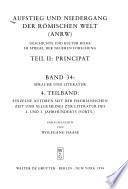
Aufstieg und Niedergang der römischen Welt: Principat. v
Autore: Hildegard Temporini , Wolfgang Haase
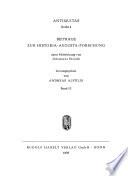
Bonner Historia-Augusta-Colloquium
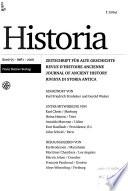
Historia
Zeitschrift für alte Geschichte.
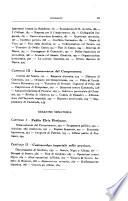
L'impero romano
Autore: Arturo Solari
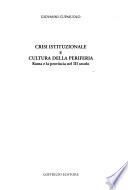
Crisi istituzionale e cultura della periferia
Autore: Giovanni Cupaiuolo
Numero di pagine: 147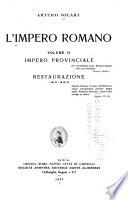
L'impero romano: Impero provinciale. Restaurazione, 193-363
Autore: Arturo Solari
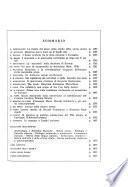
Annali della Scuola normale superiore di Pisa, Classe di lettere e filosofia
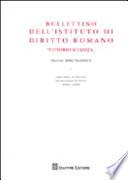
Bullettino dell'Istituto di diritto romano «Vittorio Scialoja»
Autore: Mario Talamanca
Numero di pagine: 872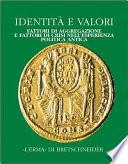
Identità e valori
Autore: Alberto Barzanò , Franca Landucci Gattinoni , Giuseppe Zecchini
Numero di pagine: 305At head of title: Universita cattolica del Sacro Cuore, Centro culturale Nicolo Rezzara.
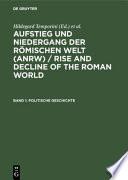
Aufstieg und Niedergang der römischen Welt
Autore: Hildegard Temporini , Wolfgang Haase
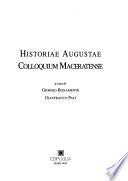
Historiae Augustae Colloquium Maceratense
Autore: Historiae Augustae Colloquium
Numero di pagine: 338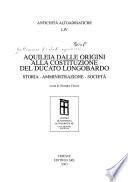
Aquileia dalle origini alla costituzione del ducato longobardo
Autore: Giuseppe Cuscito , Centro di antichità altoadriatiche (Aquileia, Italy)
Numero di pagine: 597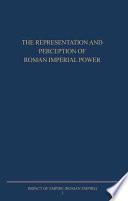
The Representation and Perception of Roman Imperial Power
Autore: Impact of Empire (Organization). Workshop , Lukas de Blois
Numero di pagine: 565From the days of the emperor Augustus (27 B.C.-A.D. 14) the emperor and his court had a quintessential position within the Roman Empire. It is therefore clear that when the Impact of the Roman Empire is analysed, the impact of the emperor and those surrounding him is a central issue. The study of the representation and perception of Roman imperial power is a multifaceted area of research, which greatly helps our understanding of Roman society. In its successive parts this volume focuses on 1. The representation and perception of Roman imperial power through particular media: literary texts, inscriptions, coins, monuments, ornaments, and insignia, but also nicknames and death-bed scenes. 2. The representation and perception of Roman imperial power in the city of Rome and the various provinces. 3. The representation of power by individual emperors.
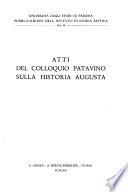
Pubblicazioni dell' Istituto do storia antica
Autore: Università di Padova. Istituto di storia antica
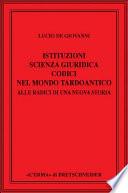
Istituzioni, scienza giuridica, codici nel mondo tardoantico
Autore: Lucio De Giovanni
Numero di pagine: 519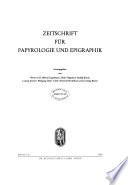
ZPE
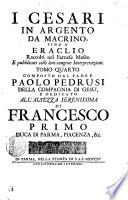
I CESARI IN ARGENTO DA MARCINO, SINO A' ERACLIO Raccolti nel Farnese Museo E pubblicati colle loro congrue Interpretazioni
Autore: Paolo Pedrusi
Numero di pagine: 324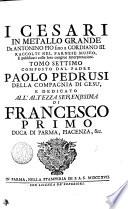
I CESARI IN MEDAGLIONI GRANDE, Da ANTONINO PIO sino a GORDIANO III. RACCOLTI NEL FARNESE MUSEO, E pubblicati colle loro congrue Interpretazioni
Autore: Paolo Pedrusi
Numero di pagine: 431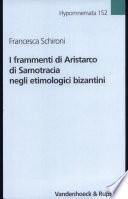
I frammenti di Aristarco di Samotracia negli etimologici bizantini
Autore: Aristarchus (of Samothrace) , Aristarque de Samothrace , Francesca Schironi
Numero di pagine: 615The volume contains all the fragments of Aristarchus of Samothrace preserved in the Byzantine Etymologica. These sources are here investigated for the first time in order to reconstruct Aristarchus' work and exegesis. In addition to the collection of the fragments in the Etymologica (often derived from the original manuscripts, as most of these lexica are still unpublished) the author has gathered all the parallel passages in the scholiastic corpora, in Eustathius' Homeric commentaries and in the rest of the grammatical and exegetical literature. Each fragment is explained with an in-depth commentary, in which the author deals with an often confused and intricate tradition and tries to clarify Aristarchus' critical and exegetical principles.The volume represents an important step towards a complete edition of this relevant grammarian of the Hellenistic time.
Vedi maggiori dettagli